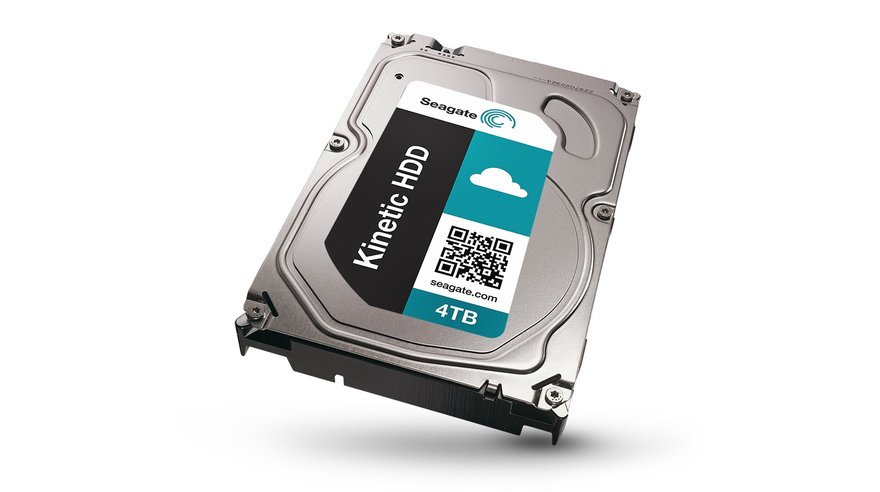Seagate has delivered its promised Kinetic hard drive - a storage device that connects via Ethernet and talks objects, not sectors. Seagate says this approach could cut cloud storage costs by up to 50 percent, and promises the ecosystem will be open so other vendors can join in.
Kinetic was first mooted in 2013, and has now been demonstrated at the OpenStack Summit in Paris.
The idea is to put more intelligence on the drive itself, and abstract the sector-level information, so drives can evolve in their own way without having to impact on the rest of the system. This potentially eliminates a whole chunk of cloud hardware - the storage servers that are currently used to manage hard drives can be replaced by a simple Ethernet switch.
Cost reduction is just the start
Seagate starts its pitch with a promise of cutting storage costs in half - reducing total cost of ownership over four years with a combination of less hardware and lower power requirements for storage.
But the real change is beyond that, product line manager Ali Fenn told DCD. “Now storage systems don’t need any notion of blocks and sectors,” she said. This opens the way for innovations in the hard drive which would normally require software rewrites - changes such as altering sector sizes, or using novel recording techniques:”Shingles come for free,” she said.
The extra hardware and lower production runs mean a Kinetic drive will cost about $25 more than a conventional one, she said. The extra hardware is in fact about two square inches of PCB packing an ARM processor.
(Pictured left: a Kinetic drive alongside the smaller PCB of a conventional drive.)
The potential drawback is that this is proprietary technology, and only available from Seagate - however, other hardware vendors are invited to sign up and Fenn assured us that the code was being released as open source, and would be under the control of an open architecture board.
The process is not under any conventional standards body - “we wouldn’t have had product till 2020,” she explained.
Early adopters such as AOL have praised the new product on its release, and storage hardware giant HP has also endorsed it. Within the OpenStack community, storage vendors such as Cloud Foundry plan to support it, although the project is still in its early stages.

